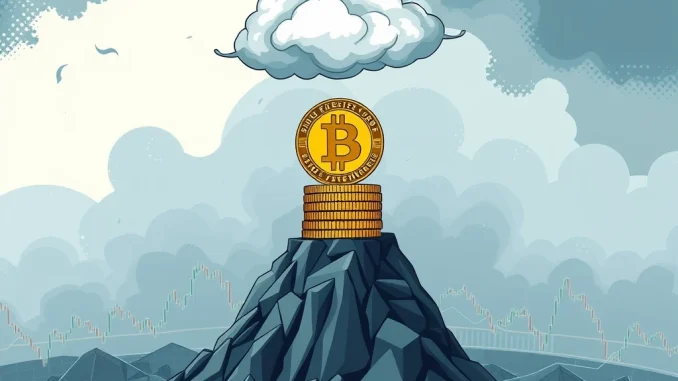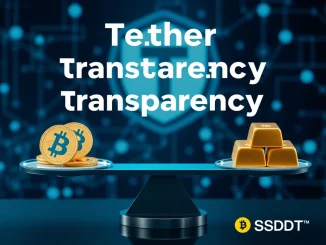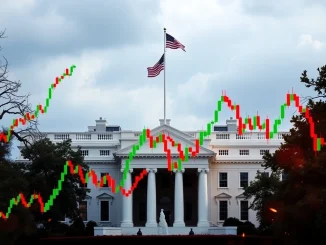
Seasoned on-chain analyst Willy Woo has issued a significant Bitcoin caution regarding the current state of the market. Taking to platform X, Woo highlighted that dangerously high levels of Bitcoin leverage are creating a precarious situation for the digital asset, making it particularly susceptible to sharp price movements aimed at liquidating over-leveraged positions.
Understanding the Risk: High Crypto Leverage
In the world of cryptocurrency trading, leverage allows participants to control a large position with a relatively small amount of capital. While this can amplify potential profits, it equally magnifies potential losses. Woo’s warning centers on the excessive amount of crypto leverage currently present in the Bitcoin market.
- Magnified Exposure: Traders borrow funds to increase their position size.
- Increased Volatility: Large leveraged positions can cause rapid price swings.
- Vulnerability: High leverage means smaller price drops can lead to forced selling (liquidation).
Willy Woo Bitcoin Analysis: The Threat of Bitcoin Liquidation Hunts
According to Willy Woo Bitcoin analysis, the current market structure is ripe for ‘liquidation hunts’. This phenomenon occurs when large market participants or sudden market movements deliberately push the price to levels where significant amounts of leveraged positions are forced to close, triggering a cascade of selling pressure. Woo suggests that the high leverage environment makes Bitcoin liquidation hunts a clear and present danger.
Woo explicitly stated that this elevated risk profile means it is currently a poor time for traders to make ‘paper bets’ on Bitcoin. While he didn’t elaborate extensively on the term in his post, ‘paper bets’ in this context likely refers to highly leveraged derivative positions, such as perpetual swaps or futures, which are purely contractual agreements without direct ownership of the underlying Bitcoin, making them particularly vulnerable to liquidation events.
Why Avoid “Paper Bets Bitcoin” Now?
Making “paper bets Bitcoin” through high leverage right now is risky because:
- Leveraged positions have strict margin requirements.
- Sudden price drops, potentially triggered by liquidation hunts, can quickly wipe out margin.
- This leads to automatic liquidation, where the exchange closes the position at a loss.
- Woo implies that the market might need to undergo such a deleveraging event before a sustainable move towards new all-time highs can occur.
Actionable Insight: Navigating the Leveraged Landscape
What does this warning from a respected analyst like Willy Woo mean for investors and traders? It underscores the importance of risk management, especially in volatile markets:
- Evaluate Your Leverage: If you are trading with leverage, understand your liquidation price and consider reducing exposure.
- Focus on Spot: For those uncomfortable with the risk of liquidation, focusing on buying and holding actual Bitcoin (spot trading) removes the leverage risk.
- Stay Informed: Pay attention to on-chain indicators and analyst warnings regarding market structure and leverage levels.
- Long-Term View: For long-term holders, short-term volatility driven by leverage liquidations can present buying opportunities, but requires patience and capital not subject to margin calls.
Conclusion: Heeding the Bitcoin Leverage Warning
Willy Woo’s recent warning serves as a crucial reminder of the inherent risks associated with high Bitcoin leverage. The market’s current structure, burdened by excessive leveraged positions, makes it a potential target for swift, punishing price drops aimed at clearing out this leverage. For traders and investors, this is a time to exercise caution, re-evaluate risk exposure, and perhaps reconsider the wisdom of making highly leveraged ‘paper bets’ when the market appears poised for a potential deleveraging event before resuming its upward trajectory towards new all-time highs.



